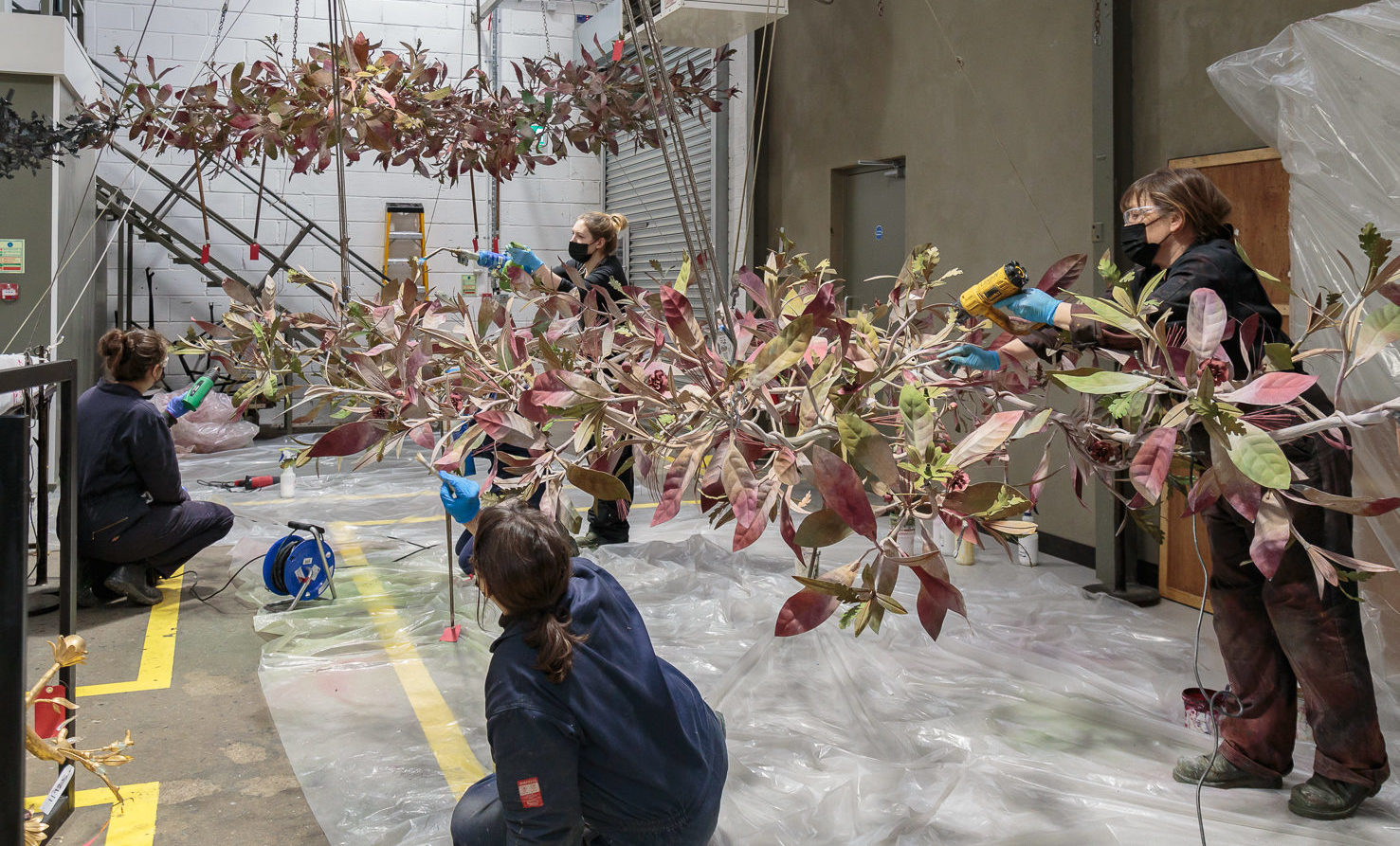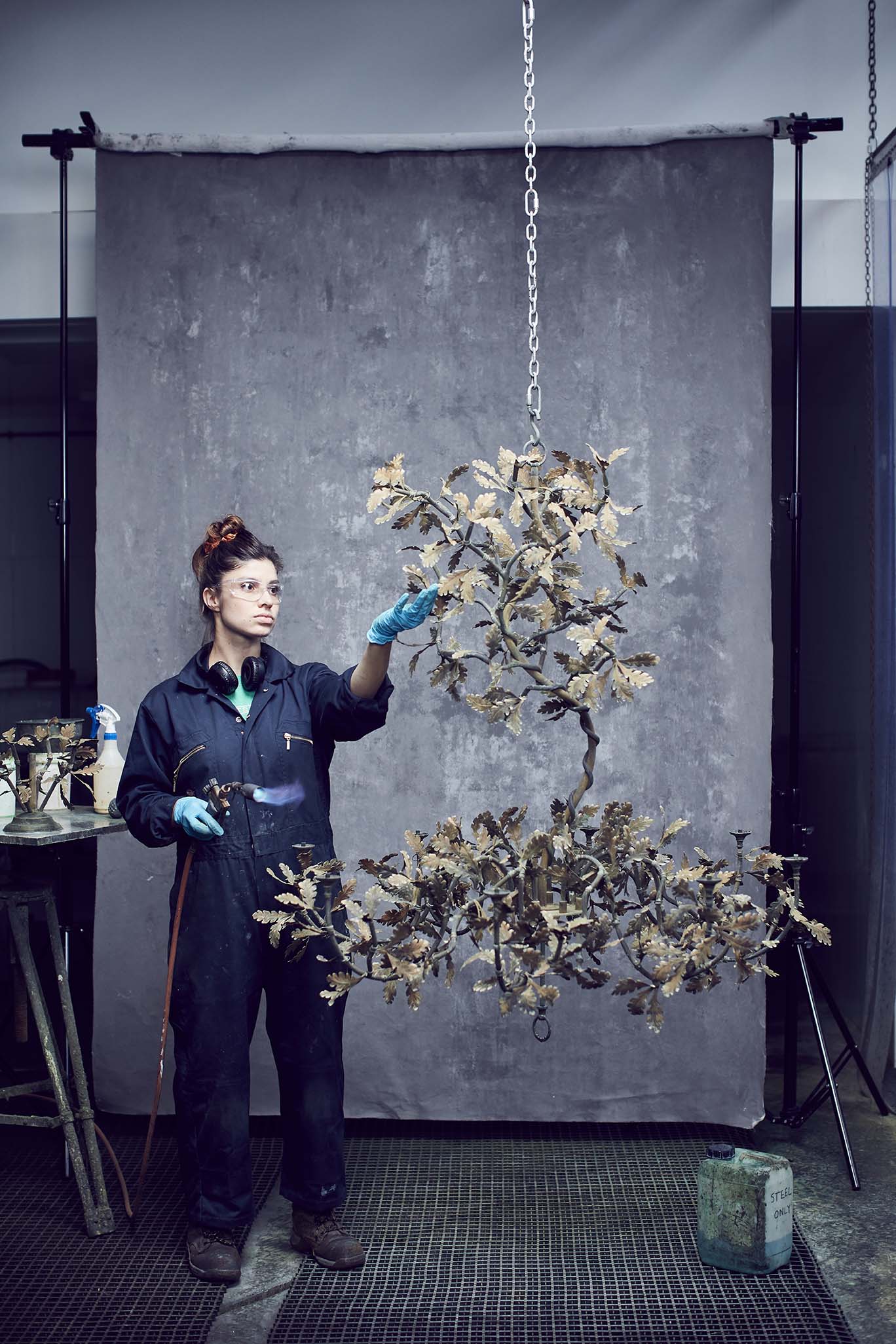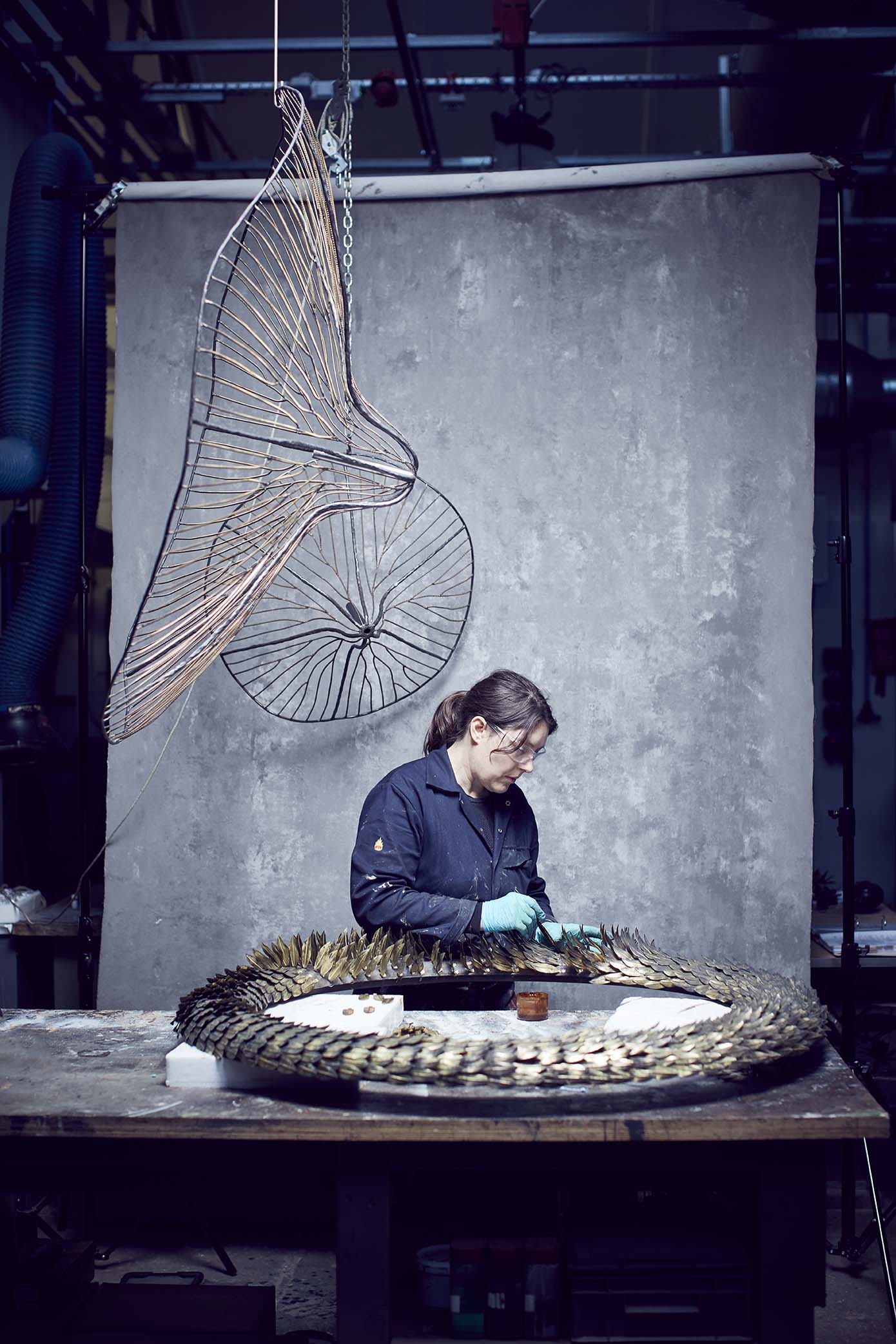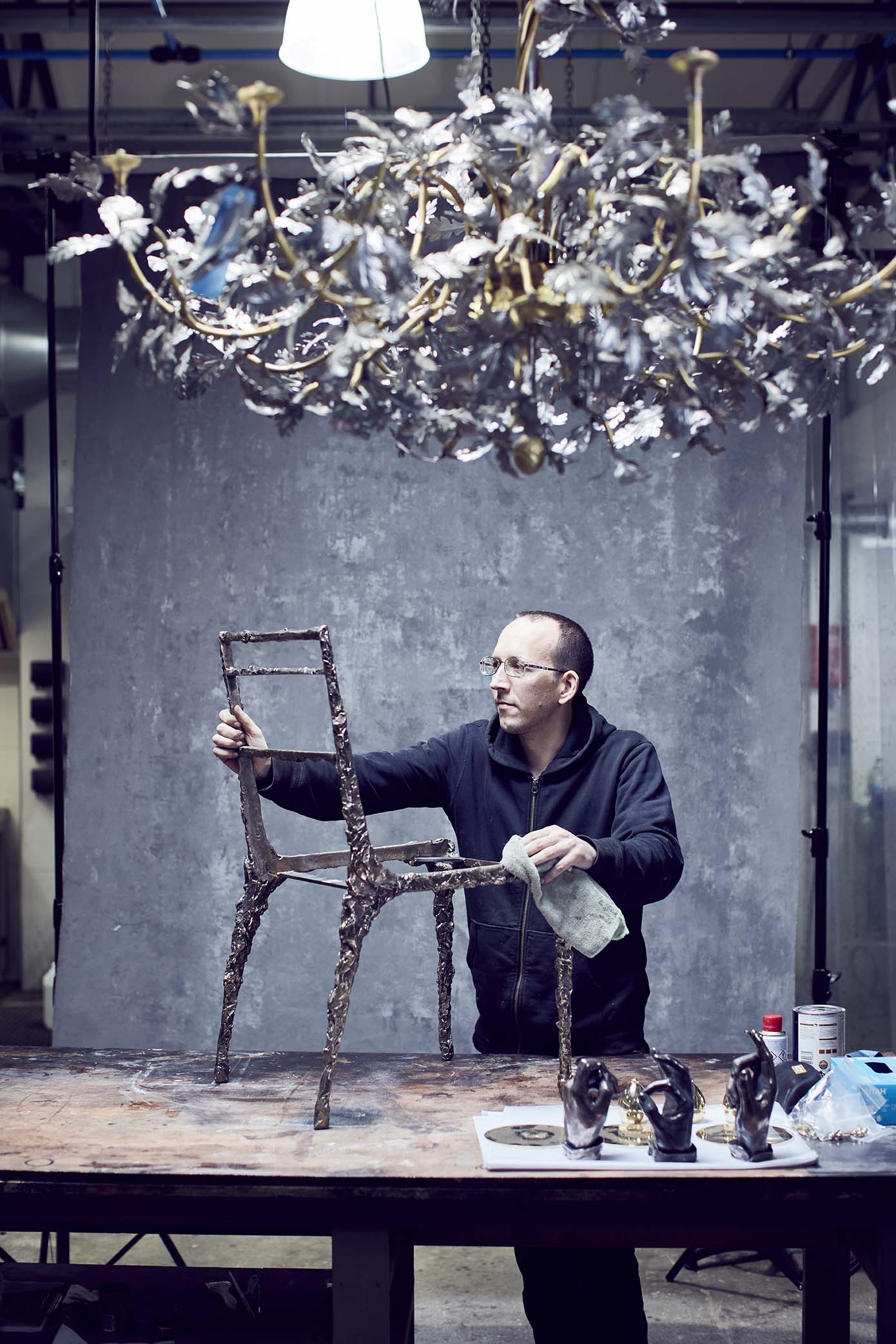
Research by UNESCO in 2022 into the creative industries demonstrated a decline in the value of the cultural and leisure sectors and a substantial loss of jobs since the Covid-19 pandemic. The heritage craft industry, which was already at risk before the crisis, has been especially impacted.
Cox Workshops Ltd
Year awarded 2022
Region London
Size <50 employees
Sector Manufacturing
%
retention rate
£m sales target met
%
growth in patination workforce
Dedication to quality training
Against all odds, Cox London, which creates distinctive, bespoke products to enhance interior beauty and deliver bold aesthetics, has experienced growth in the business, offering secure, supportive and inspiring employment for creative artisans during a period of instability.
Such success has been attributed to their preservation of traditional craft skills within a modern, successful business and their commitment to developing, training and educating employees. Their dedication to quality training has been witnessed through the establishment of the Nurture Programme.
Embracing and nurturing traditional craft practices
Traditional craft processes such as patination are essential to the nature and premium value of Cox products. In order to ensure the employment of outstanding patination skills, the Nurture Programme was established to provide training in this traditional craft.
The programme focuses on bringing together a team with shared values, providing hands-on learning, and enabling employees to reach an assessed level of competence in a distinct set of skills whilst providing consistency in quality. This structured system provides benefits to both the employees and the business through clear progression paths alongside efficient scheduling and maximised profitability.
The programme has achieved an 83% retention rate and has been vital in meeting the £4.8m sales target and growth in the patination workforce by 300%. Following its success, the programme has been extended to other areas of the company.

Valuing individuality and diversity
Whilst promoting consistency, the programme maintains the importance of capturing unique practical enhancements introduced by members to the processes and craft. As Nicola Cox, who founded Cox London with her husband Chris Cox, explained: “By its nature, handmade work is very layered and unique to the individual. There will always be a slight variation and we embrace that, we want our clients to embrace that, it is a sign of quality. We don’t want to homogenise what we do; uniqueness is a desirable trait.”
With a workforce including people of different genders, backgrounds, levels of education and experience, and with individuals with autism, dyslexia and hearing impairments, Cox recognises the importance of diversity amongst employees and of valuing the contribution that each person makes.
The company is keen to extend its reach and aid the preservation of the British craft industry through the development of Cox apprenticeships, providing opportunities to school leavers who do not have the means to afford tertiary education to develop themselves. The aim is to enhance the employability of young people within craft through their skills and experience, but also their values.
A culture of openness and collaboration
Whilst the craft and fabrication industry is typically characterised by secrecy and individual retention of skills and techniques, negatively impacting on learning opportunities in the sector, Cox London takes a different approach.
Cox is committed to providing an environment in which skills are nurtured, values are prioritised and collaboration is encouraged.
“We want Cox to be a part of people’s journey of learning and development. It is important that people are open to sharing their knowledge and learning themselves in return”
Nicola Cox
Learners have been overwhelmingly positive about the supportive and receptive environment and their feedback has been used to develop and refine the training, with more hands-on practices being introduced. Training is regarded not as a finite programme but as a continuous journey, where there is always room for improvement.
Secure employment for creative artisans
Cox’s success appears to be the consequence of a blend of respect for traditional crafts, respect for the people doing the work and a desire to create a place of work that people look forward to working in.
Nicola Cox stated that the company was keen “…to encourage and nurture a kind of contemporary arts and craft movement within our own business.” Crucially, she explained: “We want Cox not only to be a great place to work but also a great place to be from.”
Cox London saw the Princess Royal Training Award as an opportunity to enable them to share their story, to shine a spotlight on the systems they use, to show what they do and the people doing it. They are keen to demonstrate the authenticity behind their work and, more importantly, to attract other creative artisans who value heritage crafts to the company.




0 Comments